

One of the fun things about writing in the hobby space is how ridiculous many of our topics are. Ultimately, cards are hilarious because we have grown men fighting over pieces of cardboard.
And we love it. But seldom have I seen anything as ridiculous as the case of Piggy Banx versus Piggy Spanx.
Yes, you read that right. Two art card companies with similar names and concepts are involved in a legal battle. At Cardlines, we have never been afraid to tackle prominent and controversial cases.
So we stand before you, ready to tackle the great Piggy Banx versus Piggy Spanx case.
On December 13, 2024, Piggy Spanx received a cease and desist letter from Piggy Banx.
The letter reads, “It has come to our attention that you have been infirming on Piggy Banx’s intellectual rights property rights willfully and commercially.” It also references the Etsy account, Discord account, and Instagram account of the Piggy Spanx brand.
The lawsuit references the trademark of the Piggy Banx name and the logo they use, which is registered as trademark no. 7314559.
Due to the use of that, Piggy Banx alleges that the use by Piggy Spanx of the trademarked logo “flagrantly infringes” on their intellectual property rights and that it is “a calculated attempt to exploit the goodwill and creativity of Piggy Banx for Piggy Spanx’s gain.”
Piggy Spanx is a parody account that likes to show the ridiculousness of the Piggy Banx cards by showcasing some of their flaws.
The lawsuit does not reference the actual card designs. Instead, it refers to the “distinctive card nameplate designs” and its logos, so not necessarily the card art itself is at issue here.
The Piggy Banx brand was launched in 2022. They are high-concept pop art items available as NFTs or as physical cards.
The website describes them this way: “Piggy Banx is a collection of 2,222 unique and collectible Piggy Bank NFT characters designed to bring creators and digital hustlers together in a community that celebrates creativity and technology. Created by artist/designer Carlos Jovi.”
The product has a unique twist in the form of a “piggy bank” (of course); the concept is that 5% of every NFT resale goes into the Piggy Banx Vault to reward contributors with tokens, purchasing and fractionalizing tokens, etc.
Every one of Piggy Banx’s 2,222 cards is marketed as a 1/1 card, which makes sense since these are all custom items.
There is something heavily ironic about this lawsuit. Piggy Banx has had a surprising popularity over the last two years, but that has come with significant controversy.
While the Piggy Banx cards are unique, they combine many elements present in other cards and are registered as the intellectual property of different companies. Critics have noted that their business model skirts the outer limits of fair use and makes quite a bit of money.
Just a cursory look at some of their cards makes that abundantly clear. Take this card as a typical example. It is a beauty. There is no doubt about it.
But it combines two very well-known trademarked media types. The card includes Otto, the bus driver from the Simpsons, and the Grand Theft Auto computer game. The Simpsons franchise is valued at $13 billion, and Grand Theft Auto has generated $8 billion over the years.
Meanwhile, Piggy Banx uses these two iconic symbols for free and makes money.
That makes the argument that the Piggy Banx name is being used illegally ring somewhat hollow, at least at first glance.
Those are not the only accusations Piggy Banx has faced over their card manufacturing process. The claim that all their cards are unique 1/1s has also been scrutinized.
Piggy Spanx is a product made by Kardye West Customs. A company selling custom cards. They have a fierce and twisted sense of humor. Here is one recent Facebook post from that company to give you a taste of what we are dealing with here:
“Cancer got my mom last night… I was sitting in the room next to hers because the gasping was too much for me to take. But I couldn’t help but stop to check on her every couple of seconds. She took her last breath at 7:50 in her Indiana home. Holding my hand.
This is what I stopped working on to comfort her at the time of her death…. Sexcaliber-themed dildo trading card design::.she wouldn’t have been happy. It’s an exclusive spanxpiggybanx parody piggy Banx homage parody “ultra not for sale, and you gotta tell me if you get the card and it’s not valid unless we get a notification,” aka ”collect what piggybank tells you.”
Some of their items are hilarious. For example, you can get a card with Dave Chapelle in it, with the caption “Kaboom,” which looks like a Kaboom! Insert.
Their parody of Piggy Banx is somewhat pointed. The label is very similar but with some notable changes. For example, instead of the word “Good,” which appears on the Piggy Banx label, you get the word “Poop.”
Instead of the numbers that the original has on its label, the Piggy Spanx card has an “OKAY 69” on it. It’s not very sophisticated, but it certainly makes its point. Instead of 1 of 1, as it says on the original, it says “1 of 1 of a lot.” That is a dig at some accusations regarding Piggy Banx that we will get to soon.
The label also says “Paroday” in the bottom left-hand corner. That is likely an allusion to the defense they would use in court if sued. More on that below. But that was a smart idea, considering it may now end up in court.
At first glance, this case does not seem particularly important. We are talking about two relatively unimportant card artists who are going after each other.
However, we have never seen this before. It is a landmark case of a card artist taking on another card artist. It will give us an indication of what ownership artists have over their unlicensed creations.
The market for unlicensed custom cards is growing, but so far, it has been mostly unregulated. Creators like Piggy Banx and Piggy Spanx have avoided scrutiny despite skirting intellectual property standards for years.
This case may be the first to bring this unregulated world into the legal domain. It would not be surprising if this caught the attention of some of the large corporations these companies benefit from, and they started to shut down these companies.
The Instagram account for Piggy Spanx is no longer up. That is not a case of the user folding under pressure from the lawyers; instead, Instagram is doing that. On their Facebook page, Kardye West Custom Cards show that Instagram closed the page due to what they deem a violation of the intellectual property clause of their terms and services agreement.
Nonetheless, the parody cards on the main Kardye West Custom Cards account are still there. They have also come out fighting.
On their Instagram account, the company posted, “#freepiggyspanx Ironic you build your empire on other trademarks. Yet someone parodies you, and you crumble like a weak coward.”
We have to admit that they have a point.
This raises many interesting questions, like what exactly Piggy Banxs owns. The exact designs are not being stolen here; instead, we have a parody.
The case has received attention in hobby circles, and collectible legal luminary Paul Lesko, the Dan the Card Man YouTube channel, and others have covered it. However, we have to wonder if this was a good idea from Carlos Jovi’s perspective.
He is drawing attention to the use of trademarked material in this lawsuit. It would not surprise me if some of the companies on whose intellectual property he is infringing with his work would come calling.
According to his interpretation, his cards would infringe on the intellectual property of some of the biggest media corporations in the world—organizations with far deeper pockets than Piggy Banx.
Not only does a legal process like this raise awareness of the matter, but it also exposes the names of the people involved. These cases end up on dockets and increasingly on social media, making it easier for big companies to sue them.
We are no lawyers here at Cardlines. We are barely functioning adults. However, looking at the legal precedent of parody does not bode well for Piggy Banx.
Usually, a parody is considered fair use by US courts, according to section 107 of the Copyright Act. There are a few known and established exceptions to the protection of copyright works. That includes, but is not limited to, “purposes such as criticism [or] comment.”
The folks at Kardye West Customs used the word “Paroday” on their cards, most likely because they were aware of this defense’s robustness. However, it is by no means airtight. There are some loopholes and exceptions to this.
The Supreme Court made a specific distinction between two forms of humorous reference to other people’s copyrighted work. On the one hand, there is satire, and on the other, there is parody. What is the difference? “parody needs to mimic an original to make its point, and so has some claim to use the creation of its victim’s (or collective victims’) imagination. In contrast, satire can stand on its own two feet, requiring justification for the very act of borrowing.”
Using this definition, there is little doubt that the Piggy Spanx cards fall under the umbrella of satire.
Still, some criteria muddy the waters somewhat. The courts are supposed to look at these elements:
Ultimately, I don’t think Piggy Banx has much of a case. When the idea is not to benefit from the original but to make a point, the courts tend to side with those doing the parody.
For example, Weird Al Yankovich has been parodying music creators for decades. He usually asks for permission but is not legally obliged to do so. South Park has also faced several lawsuits and won them due to their transformative and parodic approach. Piggy Spanx would likely enjoy a similar defense.
Meanwhile, Piggy Banx’s use is not a parody. Therefore, fair use questions are far more relevant to their product than the Piggy Spanx release. Perhaps they are seeking a quick settlement because it is hard to imagine them winning this or doing well if they face suits from the intellectual property holders. Piggy Banx is compromising with their cards.
In addition, the main contention here is that Piggy Spanx is unfairly using the holder and logo. However, comparing the cards shows they do not have the same logo. Indeed, they are less similar than you might expect.
Another sign that the case is not very serious is that the cease and desist letter does not reference the parody defense. If it reaches litigation, they will need to address that.
But ignoring such an obvious defense in the cease and desist letter makes it seem like they don’t have an answer, which undermines the seriousness of the letter.
The world of customized cards is crazy and operates on the edges of copyright law. Considering the increased weight of corporations in our economy nowadays, it is surprising that it has not been regulated yet.
This case, though certainly not intended that way, could be the opening salvo in that regulation. It could attract the attention of more prominent players with intellectual property in these cards.
It would also not be surprising if the lawyers for the defense brought up Piggy Banx’s unfair use of intellectual property in their defense to point out the hypocrisy of the lawsuit. That would create a precedent for future lawsuits.
The success of Piggy Banx and other customized cards has probably made the eventual regulation of this space inevitable. But if they don’t want to deal with the repercussions of that immediately, they should settle the Piggy Banx versus Piggy Spanx case out of court before it captures more attention.
I hit a SWEET auto from the #1 overall pick at PCB hobby
The Ultimate 2024 Football Card Brand Tier List (Panini vs. Topps and more!)
2025 Topps All Star Game Mega Box Product Review
Ripping the new Topps All Star Game mega box.
Is this new sports card store the BEST VALUE around?
I Tested eBay Auction Promotions So You Don’t Have To!
I deep-dove on Fanatics Collect so you don't have to (but should you?)
Panini is launching a WNBA Product at $30,000!?
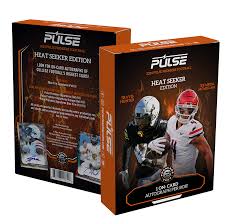
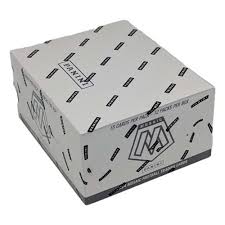
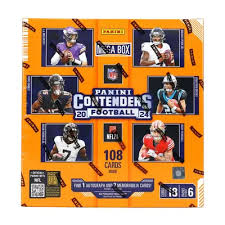
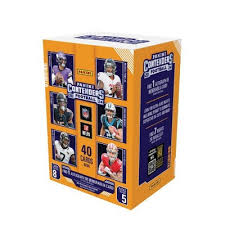
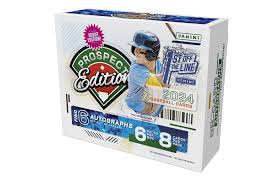
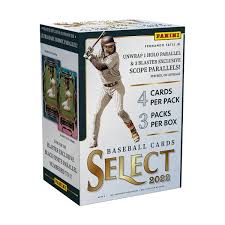
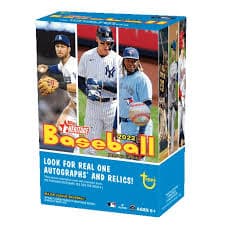
2022 Topps Heritage Baseball Blaster Box Configuration: 7 Packs per Box – 9 Cards per Box. Plus 1 extra pack.
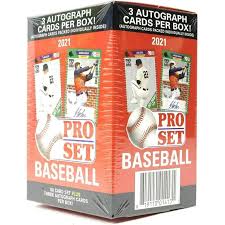
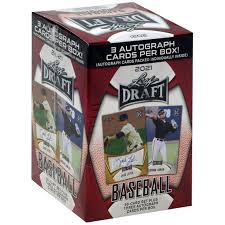
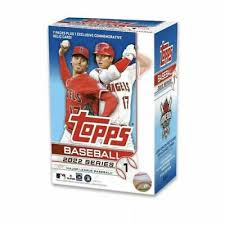
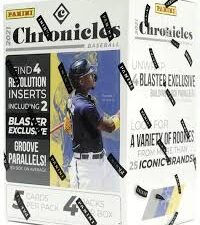
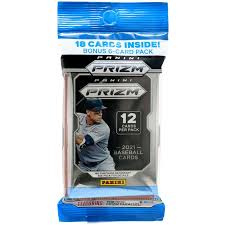
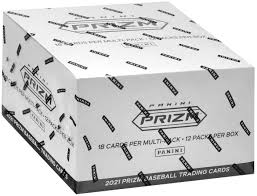

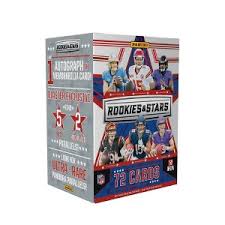
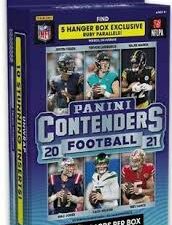
Keep up on breaking Sports Card News, our latest articles, product specials and exclusive content with expert analysis of hobby trends.
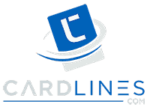
© Copyright 2025 - All rights reserved Cardlines.com / Media Techs LLC - Sports Card News, Reviews, Releases and BREAKS - #thehobby.
Important: When you click on links to various merchants on this site and make a purchase, this can result in this site earning a commission. Affiliate programs and affiliations include, but are not limited to, the eBay Partner Network.
Sports Card Scavenger Hunt! (5,000 Subscriber Special!)
Cardlines 18 hours ago